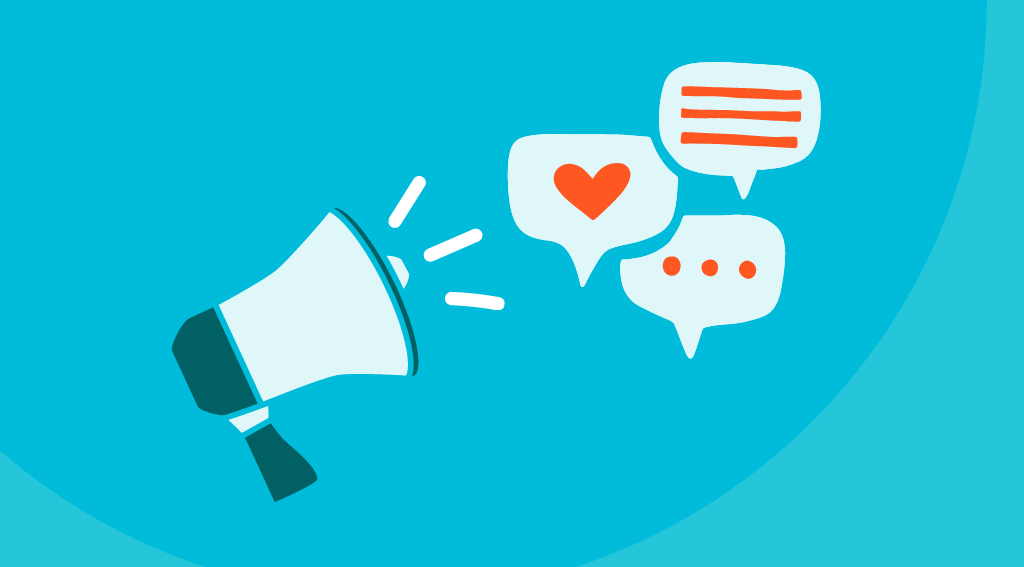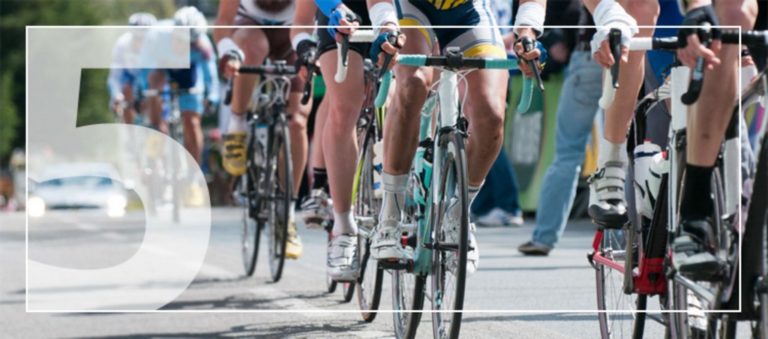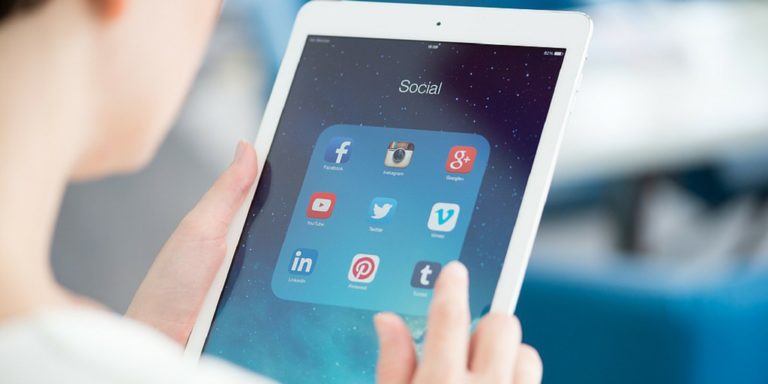If you’re an event professional or organizer, you know that having the right event promotion strategies is key. Without a strong campaign, your event will likely go unnoticed by your target audience.
So, what are the best marketing strategies to consider when promoting your upcoming events? Check out the information below to learn what elements, tools, and techniques to include in your marketing campaign to ensure event success.
What Are the Keys to a Successful Event Promotion Strategy?
Any successful event promotion strategy starts with the question: “What is event marketing?” Whether you’re just getting started or looking for ways to improve your current event marketing strategy, you will benefit from taking the time to answer this question with a particular focus on your event’s objectives.
Event marketing is the process of creating awareness and excitement about future events through various marketing channels. The main goals are to generate interest and encourage event attendance.
The most effective event marketing strategies make use of a variety of marketing channels, including:
- Email marketing
- Social media marketing
- Content marketing
- Paid advertising
- Event listings and directories
- PR and media relations
- Influencer marketing
- Word of mouth
The key to any successful implementation of these promotional strategies is to ensure that your event marketing plan aligns with your event’s overall goals and objectives, target audience, and budget.
For example, if you’re looking to increase ticket sales, email marketing and paid advertising should be given the most weight in your event marketing strategy. However, if you aim to generate more awareness or build a community around your event, you might give more prominence to social media and content marketing.
Moreover, there are business-to-consumer (B2C) and business-to-business (B2B) event marketing campaigns. While you may use the same marketing strategies and platforms for both, the tone of your messaging and the value proposition you provide can differ.
The main difference is that B2C event marketing generally focuses on mass appeal while B2B event marketing is geared toward a smaller, more targeted audience. For instance, B2C event marketing is often more creative and relies heavily on emotion to generate excitement, while B2B event marketing can be more factual, highlighting the event’s key features.
The bottom line is that the best event marketing campaigns are tailored to the specific needs of the event and its audience.
Event Marketing Strategies
When marketing events, it’s essential to explore various promotional strategies. This can range from innovative marketing solutions such as digital marketing tools to more traditional marketing techniques such as print advertising.
Below is an overview of the most effective event marketing strategies to consider for your next promotional campaign.
Know Your Target Audience
The event marketing mix depends on your target audience. Different channels work better for different demographics. If your event targets Millennials, you’ll focus on social media and content marketing. By contrast, if your event is aimed at Baby Boomers, email marketing and paid advertising might be more effective.
The most important thing is to know who your target audience is and what marketing channels they are most likely to use. This will ensure that your event marketing campaign meets their needs and expectations and is more likely to result in event attendance.
Establish Your Event Goals
Before planning your event marketing strategy, it’s crucial to establish your event goals. This will help you determine the most effective marketing tactics to use and the key event metrics you’ll need to collect to measure the success of your event marketing campaign.
Some common event goals include:
- Generating ticket sales
- Increasing brand awareness
- Building community engagement
- Creating event buzz
- Driving website traffic
Identifying your event goals will also help you create more targeted and effective event marketing collateral such as event website banners, email marketing templates, and social media posts.
Create a Dedicated Pre-event Page
A dedicated pre-event page is another excellent way to promote your event and generate excitement prior to the event date. You can create a landing page on your event website or use a branded microsite.
Your pre-event page should include key information such as the event date, time, location, and ticket prices. It should also feature event marketing collateral such as event photos, videos, and testimonials. In addition, your pre-event page should include a call-to-action (CTA) to encourage instant event registration.
An advantage of using a branded page separate from your company website is that it allows you to track event registrations and traffic separately from your primary website traffic. This is useful data to have when evaluating the success of your event marketing campaign.
Tap Your Social Network To Find Event Partners
When it comes to event marketing, it’s important to consider all of your options. One often-overlooked promotional strategy is tapping into your social network to find partners for your event.
Event partners can help you promote your event and increase event attendance. In addition, partnering with other businesses or organizations enables you to tap into new markets and reach new event attendees.
Here are three tips for finding event partners:
- Use social media to identify potential partners. You can use hashtags, keywords, and event locations to find businesses or organizations that might be interested in partnering with you.
- Attend industry events and meetups. This is a great way to network with potential partners and get your event on their radar.
- Reach out to businesses that are a natural fit for your event. For instance, partnering with a local winery or restaurant would make sense if you’re hosting a food and wine event.
When reaching out to potential partners, be sure to have a well-defined event marketing plan that outlines how the partnership will be beneficial for both parties.
Take Advantage of Search Engine Optimization
A good event marketing strategy is to use search engine optimization (SEO). SEO is the process of optimizing your website and content to rank higher in search engine results pages (SERPs). This is essential because it can help you increase event website traffic and boost ticket sales.
The easiest way to optimize your event website is to focus on on-page SEO. This requires you to include relevant keywords in your page titles, meta descriptions, and content. In addition, you’ll want to ensure your website is mobile-friendly and loads quickly. These are all factors that search engines take into account when ranking sites.
A related strategy to consider is to create promotional and educational blog posts about topics relevant to your event industry. These pieces of content also need to contain relevant keywords and links to your event website. This will help improve your website’s search engine ranking and drive more traffic to your event page.
Offer Early-bird Tickets
Another promotional idea you could try is to offer early-bird tickets. This type of ticketing incentive can help increase event attendance and generate excitement for your event.
Early-bird tickets are usually offered at a discounted price and are only available for a limited time. This creates a sense of urgency and encourages potential event attendees to register sooner rather than later.
When creating an early-bird ticketing offer, on your website or in the form of paid ads, for example, you need to include all of the relevant information such as the date, time, and location. You’ll also want to clarify how many tickets are available at the discounted price.
Start an Email Campaign
The next marketing strategy to consider is to start an email marketing campaign for your event. Email marketing allows you to reach a large audience with minimal effort. Plus, it’s a cost-effective way to market upcoming events.
Your marketing email should include the following elements:
- A compelling subject line to grab the attention of your recipients and get them to open the email
- Clear copy to persuade people to attend your event and share it with their network
- Social proof, such as event testimonials or customer reviews, to build trust and credibility
- A strong CTA to encourage potential attendees to register for your event
It’s also imperative to select the right automation tool for your email campaigns. There are several email marketing platforms to choose from, such as MailChimp, Hubspot, Constant Contact, and MailerLite. But as you set up your email list, keep in mind that the right solution should integrate seamlessly with any event marketing technology you may use.
Leverage Your Favorite Social Media Platforms
Social media can serve as a powerful marketing tool to promote events. It’s an effective way to reach a large audience and generate interest before, during, and after an event. So, using your favorite social media platforms can be another strategy for your event marketing campaign.
Which social channel to prioritize depends on your target audience, brand voice, and content strategy. But some of the most popular social media platforms used by event marketers include Facebook, Twitter, Instagram, and LinkedIn. For example, if you’re targeting businesses or professionals, LinkedIn and Twitter would be good platforms to focus on. Alternatively, promoting your event on Facebook can be a great way to reach a more general audience.
However, choosing the right social channels is not enough. There are endless possibilities for using social media for marketing purposes. So, here are three tips to help you get started:
Make Regular Social Media Posts to Update Potential Attendees
A key element of social media event promotion is creating regular posts that update potential attendees on what to expect at your upcoming event. This could include sharing the event schedule, speakers, or even announcements about ticket sales.
By sharing this type of content, you can generate excitement and interest in your event. Plus, it helps to build anticipation leading up to the big day.
Use Influencer Marketing
Another social media marketing strategy to consider is influencer marketing. This type of marketing involves working with social media influencers to promote your event.
Influencers are people with a large following on social media who are considered experts in their field. They typically have high engagement rates and can help you reach a wider audience.
Create an Event Hashtag
Creating an event hashtag is another excellent way to promote your event on social media. This allows you to track all social media posts about your event in one place.
Hashtags make it easy for potential attendees to find information about your event, and they also allow you to see what people are saying about it. This can be valuable feedback to help you improve your event marketing process for future years.
Run Paid Ads
And the final event marketing strategy to consider is running paid ads. These types of ads allow you to target your audience with laser precision. So, if you know who you want to reach and how to catch their attention, this could be an excellent option for you.
There are several options to choose from when it comes to paid ads. The two most popular ones are social platforms and Google.
Social Media Ads
Social media channels like Facebook, Instagram, and LinkedIn all have their own ad platforms that allow you to target specific audiences.
For example, with Facebook Ads, you can target people based on their location, interests, demographics, and even behavior. So, if you want to reach people who live in a particular city and are interested in topics related to your event, you can target them with your ads.
The downside of social media ads is that they can be expensive. The cost of these ads depends on many factors, such as the platform you’re using and the target audience you’re trying to reach.
Google Ads
Another option for running paid ads is through Google. Google Ads is a pay-per-click advertising platform that allows you to place ads on Google.com and countless other websites.
These types of ads appear on Google search results pages when people search for keywords related to your event. For example, if someone searches for “conferences in San Francisco,” your ad could appear at the top of the results page.
Google Ads can be a great way to reach potential attendees who are already interested in your event. As with social media ads, they can be expensive. The cost of these ads depends on how much competition there is for the keywords you’re targeting.
Amp up Your Event Promotion With Digital Marketing and Event Software
Whatever marketing mix you choose for your event promotion, the right digital marketing tools can take your efforts to the next level. Automated multi-channel marketing instruments, for example, enable you to advertise your events simultaneously on various platforms, including Facebook, Instagram, and Google, saving you valuable time. And with custom data reports, you can track your progress and conversions to see which strategies work best for you — all in one place.At Events.com, we offer everything you need to streamline your event promotion process. From ticket registration and sponsor management to multi-channel advertising and conversion tracking, we have you covered. Check out our event marketing services and start planning your next event promotion campaign with us today.






